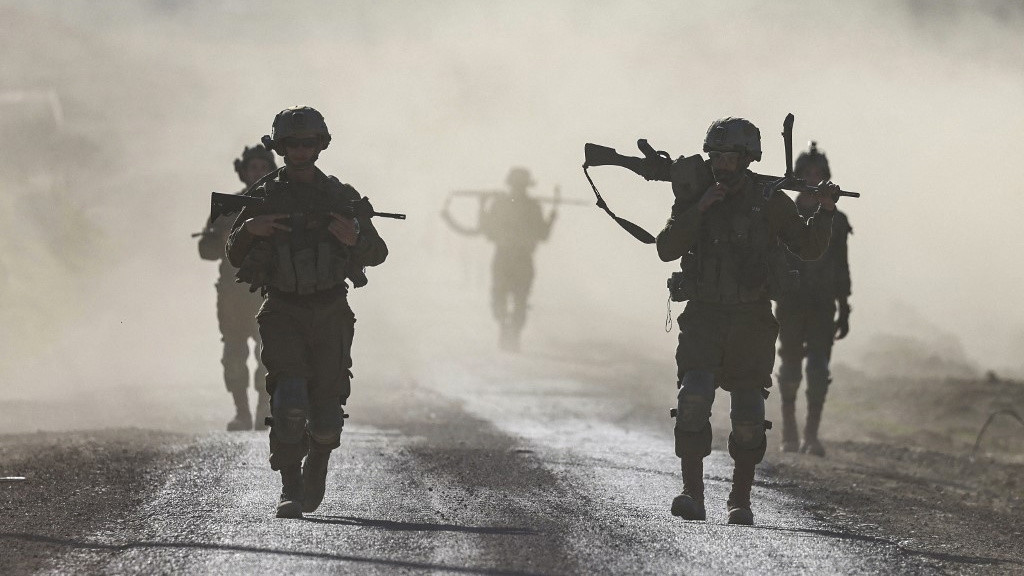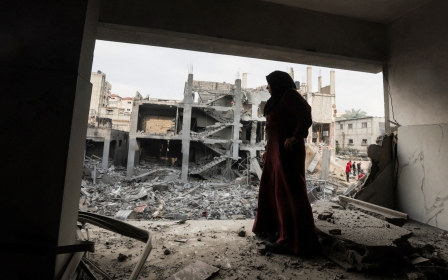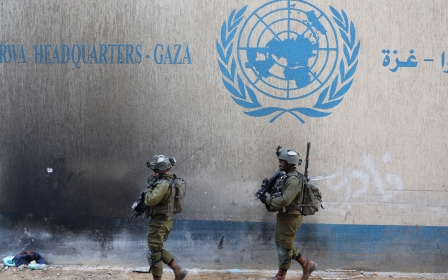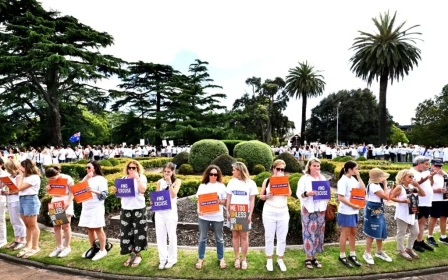War on Gaza: Why Israel is not held accountable for sexual violence

Since the 7 October attacks, Israel has repeatedly accused Hamas of committing sexual violence during its incursion. Many mainstream western media outlets have paid considerable attention to these allegations, despite a lack of concrete evidence.
But while reporters must always take such accusations seriously, it is equally important for them to uphold journalistic standards in the process - and there appear to have been serious lapses in that regard.
At the same time, allegations involving Palestinian women in Gaza have received far less airtime.
Despite a UN report citing testimonies from Palestinians who said they were sexually assaulted and beaten while in Israeli detention, the mainstream western media has failed to give this issue much attention.
In addition to the UN report, there are many documented cases of Palestinian women who described sexual abuse at the hands of Israeli forces. Detainees reported being stripped to their underwear, beaten, searched and threatened with rape.
New MEE newsletter: Jerusalem Dispatch
Sign up to get the latest insights and analysis on Israel-Palestine, alongside Turkey Unpacked and other MEE newsletters
Meanwhile, Israeli soldiers have proudly displayed the lingerie of women who were killed or displaced from their homes, raising serious questions about what these soldiers are doing away from the cameras and TikTok posts.
Despite all the documented cases of sexual assault, however, Israel has used a single incident to refute them all.
Ethnic cleansing
After Al Jazeera recently covered an alleged eyewitness account of the rape of a Palestinian woman by Israeli forces at al-Shifa hospital, the network backtracked upon learning the claims were fabricated, with a former managing director saying the woman had misled people “to provoke an emotional response”.
The allegations came amid Israel’s latest raid on the hospital, which killed hundreds of people and left the al-Shifa complex in ruins.
Follow Middle East Eye's live coverage of the Israel-Palestine war
After the report was debunked, Israeli Foreign Minister Israel Katz suggested that the UN was wrong to take any such reports seriously, posting on X: “Look surprised, the Palestinians fabricate stories of rape to incite anti-Semitism.”
This is a dangerous position, considering that the UN and other human rights groups have recorded myriad other incidents of sexual assault and humiliating treatment of Palestinian women by Israeli soldiers.
The use of rape as a weapon by Zionist gangs during the Nakba contributed to forcing Palestinians out of their homes and villages
Yet, for a couple of reasons, such testimonies often do not see the light of day. Firstly, there is a taboo around this issue in Arab communities, making victims of rape or sexual harassment less likely to come forward. Families sometimes conceal such allegations to preserve their “honour” - a mentality that applies not only in situations of war, but also with regards to domestic crimes.
Secondly, in the context of Gaza, there are widespread fears that an official acknowledgement of sexual violence against Palestinian women could fuel Israel’s ethnic cleansing drive. The use of rape as a weapon by Zionist gangs during the Nakba contributed to forcing Palestinians out of their homes and villages; even just rumours of such incidents pushed families to flee. Today, there are fears that the Nakba could be repeated.
All of this has left us in a situation where Israel, despite being accused of sexual violence in the ongoing war on Gaza, continues to benefit from the silence of mainstream western media - and sometimes the silence of the victims themselves.
The views expressed in this article belong to the author and do not necessarily reflect the editorial policy of Middle East Eye.
Middle East Eye delivers independent and unrivalled coverage and analysis of the Middle East, North Africa and beyond. To learn more about republishing this content and the associated fees, please fill out this form. More about MEE can be found here.





